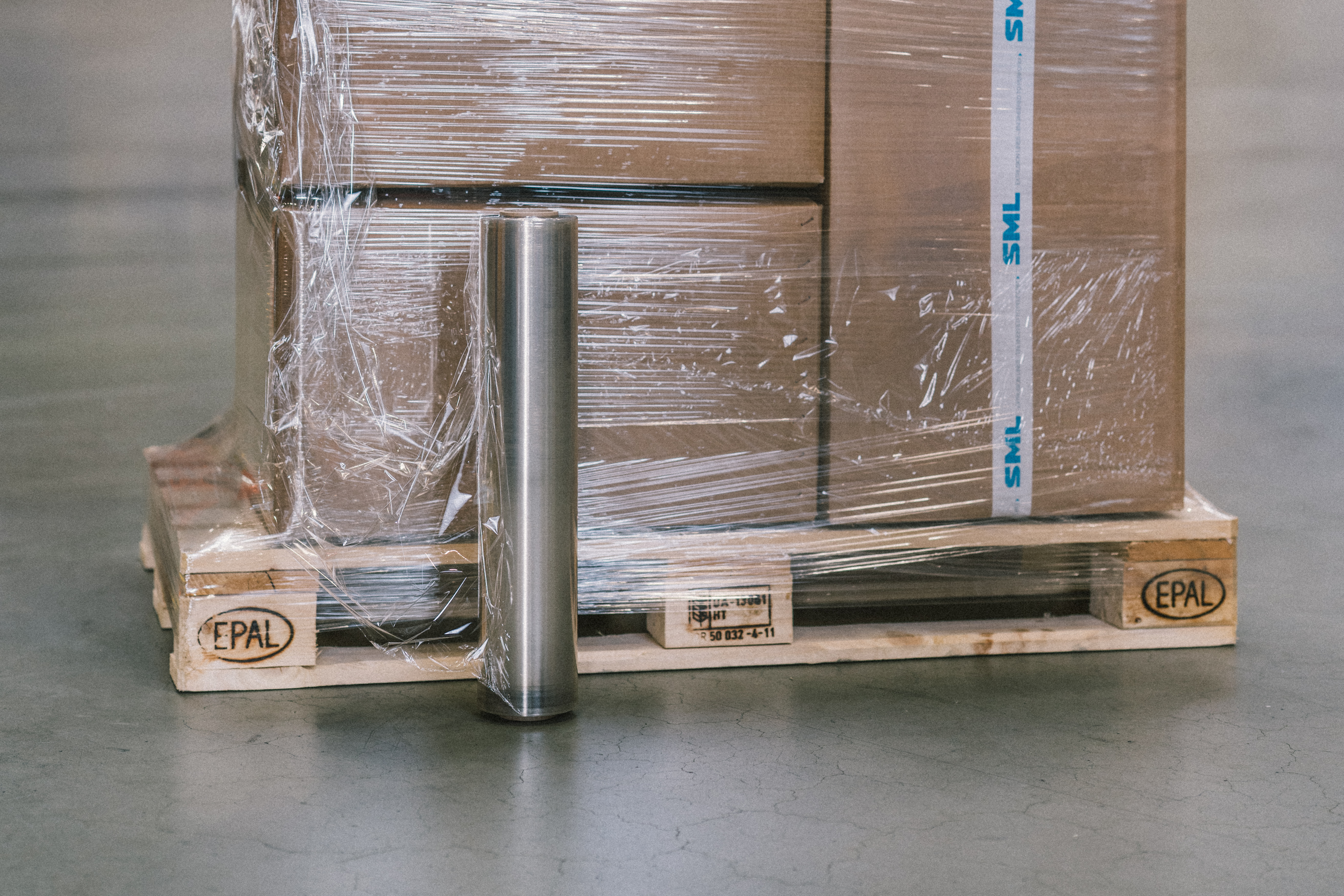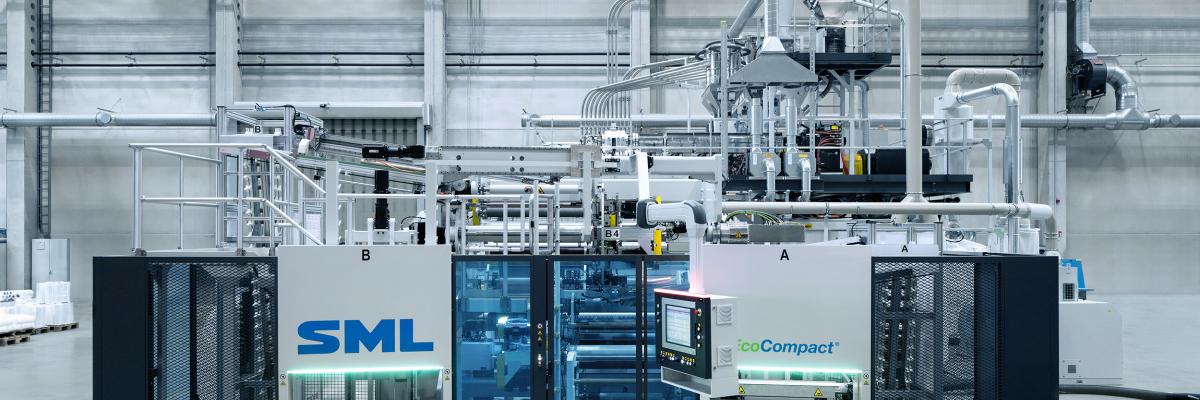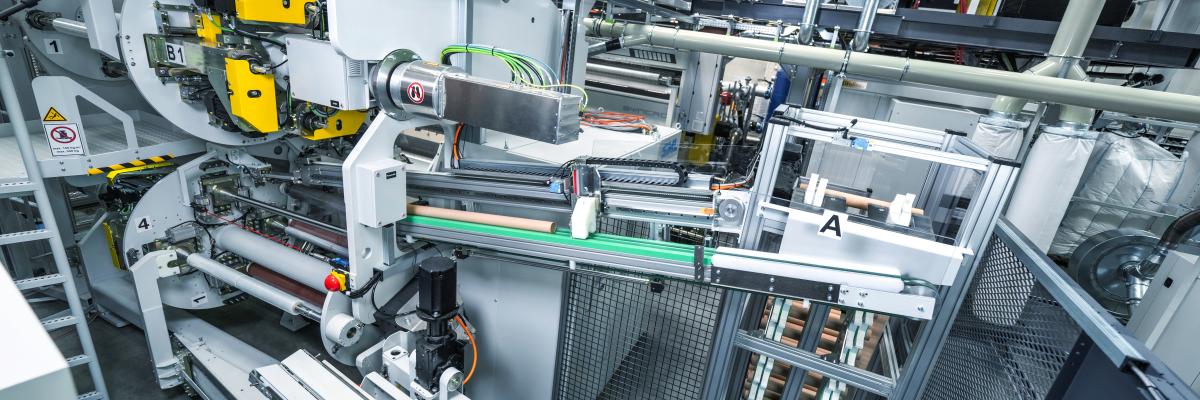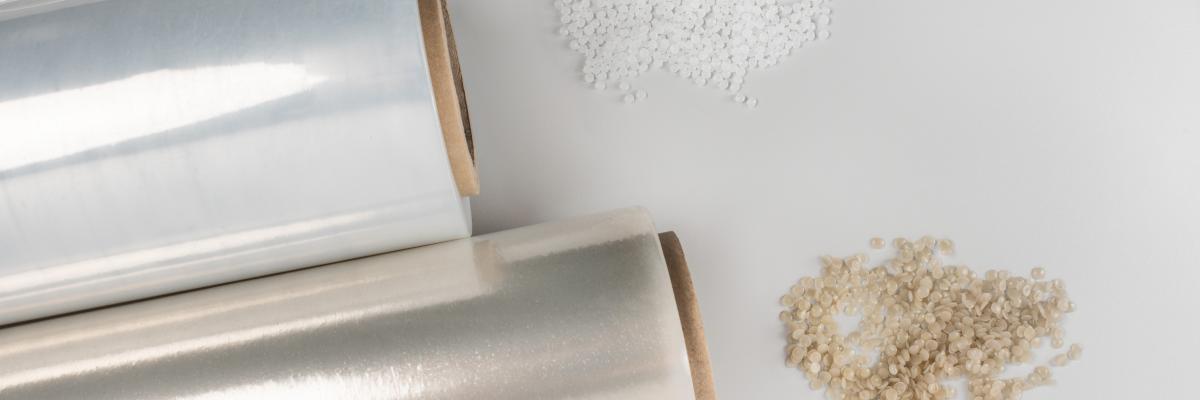Breadcrumb
Simple processing: PCR in stretch film for hand rolls
Post-consumer resin (PCR) is well suited to the production of stretch film for hand rolls since the requirements for elongation are much less demanding compared to machine film. At the same time, there is a huge market for environmentally-friendly hand-stretch film.
SML has played a pioneering role in developing the usability of post-industrial resin (PIR) and post-consumer resin in stretch film production. Over the past years, SML has explored various approaches and successfully developed new processes for the industrial-scale production of more eco-friendly products on its stretch film lines.
Hand stretch film versus machine stretch film
However, most of the recent product developments have focused on premium quality films for machine rolls, emphasising a high elongation and tear propagation. “Achieving a consistent stretch film performance with PCR for high-speed wrapping can be extremely challenging. This is not the case with hand film production. Therefore, it is worth considering the market for hand rolls, which accounts for a significant proportion of all stretch film in use. In Europe, around 50 % of all of the stretch film produced is, in fact, for manual use,” Thomas Rauscher, the Product Manager at SML, explains.
PCR in SuperStiff film and film with ModifiedEdges
A high elongation is not quite as critical in hand films since this typically stretches by only 30-80 %. This means that PCR gels are also less problematic, and the film is less prone to breakage. “SML has conducted several trials using 30 % PCR for hand film with very promising results,” Thomas Rauscher says. A PCR content of 30 % can be successfully utilised in both the standard hand film and the SuperStiff version, as well as for manual rolls with ModifiedEdges. A thickness range of 8 -12 µm presents no challenges in terms of the film quality or processability during extrusion.
“Therefore, we see a strong opportunity to incorporate PCR into hand film applications, offering both environmental and economic benefits”, Thomas Rauscher concludes.
Redlham, 19.05.2025



